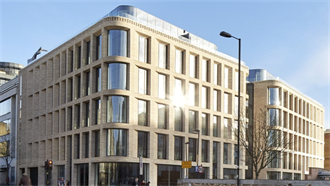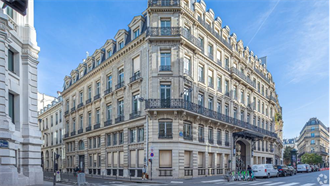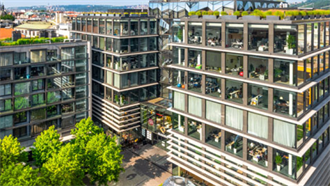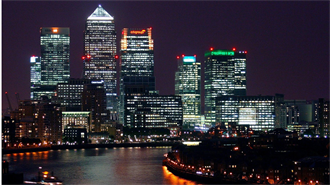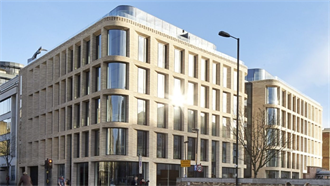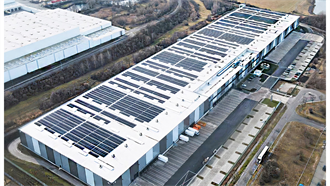Theresa May's triggering on 29 March of Article 50, the official notice of divorce proceedings between the UK and the European Union, was one of the most momentous happenings in recent European history. Yet, UK real estate seems to be taking it largely in its stride - so far.
It was momentous as Britain is going it alone after 44 years in the EU, probably saying goodbye to access to the single market and some - though unlikely all - of the union's myriad rules and regulations. Momentous as lots of countries over the years have clambered to get into the club; nobody has ever left voluntarily, until now.
At the same time the Article 50 filing was something of a non-event. Everyone had been waiting for this since the Brexit referendum vote in June 2016. All sides have drawn their policy lines in the sand, which they will seek to defend or cross over the next two years before a final settlement has to be reached.
What now for Britprop?
UK real estate investment was one of the earliest casualties of the decision to hold the Brexit referendum. Investors, particularly those coming from overseas, hit the pause button in the months running up to the vote. The surprise win for Brexit ensured 'uncertainty' remained the dominant theme for the rest of the year, although investment volumes picked up as previously stalled deals went ahead.
Overall UK real estate volumes came to €57 bn in 2016, a year-on-year decline of 40% compared to 2015. Germany, meanwhile, capitalised on its safe haven status to become the largest investment market in Europe, with €59 bn of trading.
Just as one might assume it is fair to call a Brexit ‘knock-out’, Britprop appears to be back on its feet and ready to mount a spirited fight back. Savills has put numbers on the bounce-back: UK investment volumes for the first three months of 2017 are set to 'comfortably beat' the long-term Q1 average of £9.8 bn (€11 bn), the adviser said this week.
This rebound is largely due to the sale of trophy assets. International investors have picked off a number of big-ticket assets in London, helping to keep its key sub markets afloat despite concerns Brexit will scupper the city’s massive financial sector. Indeed, the top five office deals recorded by PropertyEU Research in the first quarter were all in London.
The increased activity is, according to Cushman & Wakefield, partly due to investors coming to terms with the political reality and the emergence of a bias towards business as usual.
Colin Wilson, head of UK & Ireland at C&W, put it this way: ‘While (Article 50) is an important moment, it is an expected and largely symbolic act compared to firstly, the date two years from now when the 24-month window for negotiations concludes, and secondly, the many twists and turns that we can expect along the way. It is of more interest to me what that road map looks like.’
Perhaps more importantly, JLL notes in a report launched to coincide with the Article 50 declaration, the depreciation of the pound, plus a slight drop in capital values, is spurring cross-border investment.
Currency movements have not had a strong historic correlation with overall international capital inflows into the UK. But sterling deprecation provides an added fillip to the investment case for many long-term investors, said Ben Burston, head of UK Office and Capital Markets Research at JLL. ‘This is based on their perception that it may appreciate once there is more clarity around Brexit and its economic implications, but it is not a case of one-size-fits-all.'
Hong Kong to the rescue
Besides German fund manager Deka Immobilien acquiring the freehold of Facebook’s UK headquarters in London for €509 mln, much of the heavy lifting in Q1 has been done by Asian investment firms, particularly developer-investors from Hong Kong, the British Dependent Territory which was returned to China in 1997.
Hong Kong developer C C Land gave the city the biggest vote of confidence on 1 March when it acquired the Leadenhall Building for £1.1 bn (€1.35 bn). Two weeks earlier CC Land acquired One Kingdom Street in London's Paddington Central for €344 mln. Emperor International Holdings, a Hong Kong-based property investment company, flexed its muscle in January by acquiring Ampersand, a mixed-use eight-storey building in Oxford Street in central London for €303 mln.
The importance of capital from Hong Kong was a key theme at a PropertyEU Investment Briefing at Mipim in March. ‘The London market is now dependent on Hong Kong and the Chinese,' said Richard Divall, head of cross-border capital markets for EMEA, at Colliers International. ‘It is mainly family office type of capital rather than insurance companies, as the Chinese government is worried they will make the wrong investments like the Japanese did in the late 1980s.’
The upshot of this sort of activity is that real estate prices are continuing to rise, both in London and across the UK. In its latest Market in Minutes report on the UK, Savills notes that average UK prime yields sharpened to 4.79% in February 2017, with the UK now in the longest sustained period of decreasing yields since early 2014. Yields in the City Office market dropped to 4% in February due to falling supply and continued demand from investors.
The way forward over the next two years seems to be to start building for the future, in the hope that foreign investors and tenants haven't found greener pastures in the meantime.



























